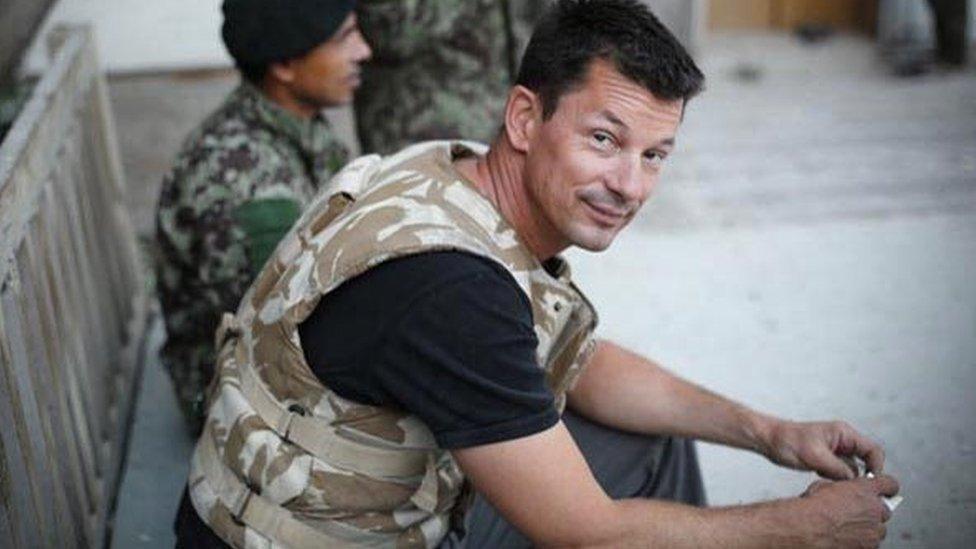Islamic State 'Beatle' Alexanda Kotey pleads guilty over US hostage deaths
- Published
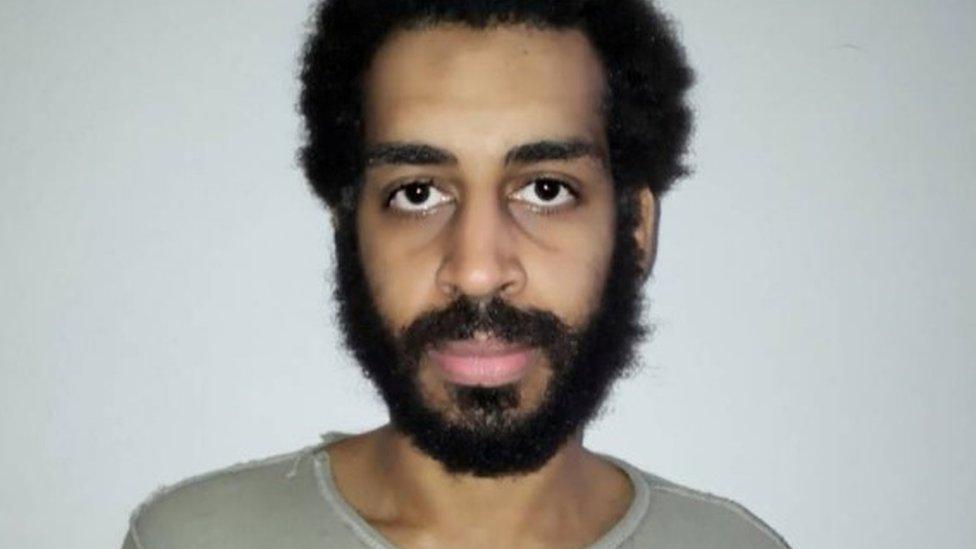
Alexanda Kotey (file image)
An Islamic State (IS) group suspect from the UK has pleaded guilty in a US court to multiple charges relating to the murder of four American hostages.
Alexanda Kotey is accused of belonging to an IS cell dubbed "The Beatles" which was involved in kidnappings in Iraq and Syria.
The IS cell was allegedly responsible for the beheadings of a number of Western and Japanese hostages.
Kotey, 37, pleaded guilty to all eight charges and now faces life in prison.
He attended a change of plea hearing at a federal court in Alexandria, Virginia on Thursday, where he pleaded guilty to charges including hostage taking resulting in death and conspiracy to murder US citizens.
"Kotey has been afforded due process and in the face of overwhelming evidence, he made the independent decision to plead guilty to his crimes," lawyer Raj Parekh, a member of the prosecuting team, told reporters outside the court.
"He has agreed to spend the rest of his life in prison," he added.
Kotey and fellow "Beatle" El Shafee Elsheikh, 32, are on trial for their involvement in the murders of US journalists James Foley and Steven Sotloff, and relief workers Peter Kassig and Kayla Mueller.
Both men are also suspected of involvement in the deaths of other hostages, including Alan Henning - a British taxi driver who was delivering aid - and Scottish aid worker David Haines, as well as two Japanese nationals.
The pair initially pleaded not guilty at a hearing in October.
The change of plea suggests Kotey may now co-operate with prosecutors. It is not yet clear whether Elsheikh has reached a plea deal with authorities.
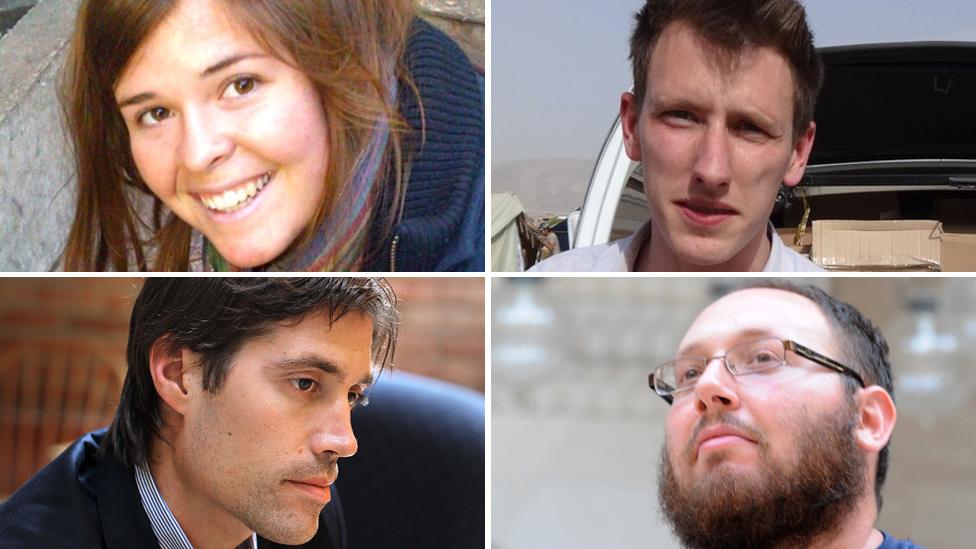
Clockwise from top left: Aid workers Kayla Mueller and Peter Kassig, and journalists Steven Sotloff and James Foley
The two men were flown from US custody in Iraq last year to face the charges, which carry a maximum penalty of life in prison.
Originally from west London, their alleged IS gang was given its Beatles nickname by hostages due to their British accents. They were stripped of their UK nationality in 2018.
Some of the victims were beheaded, with their deaths filmed and broadcast on social media. The high-profile killings triggered outrage around the world.
The group's alleged ringleader, Mohammed Emwazi, known as "Jihadi John", was killed in a drone strike in 2015.
Another gang member, Aine Davis, was arrested and imprisoned in Turkey.
Kotey and Elsheikh remained at large until they were captured in 2018 by Syrian Kurds fighting IS.
The US government had wanted to put them on trial but was lacking evidence.
The men were in a legal limbo for several months, held by the US military in Iraq where the US attorney general threatened to hand them over to local courts, known for their summary justice and executions.
But the US said it would not carry out the death penalty if the men were convicted in a US court.
British counter-terrorism officials have since shared crucial evidence with US officials.
Elsheikh is scheduled to go on trial in January.
Kotey's plea deal, meanwhile, carries a minimum sentence of life without parole. But after 15 years he would be eligible to be transferred to the UK to face any possible charges there.
His sentencing is due to take place in March next year.
Interview with Islamic State 'Beatles' duo in 2018
- Published20 August 2020
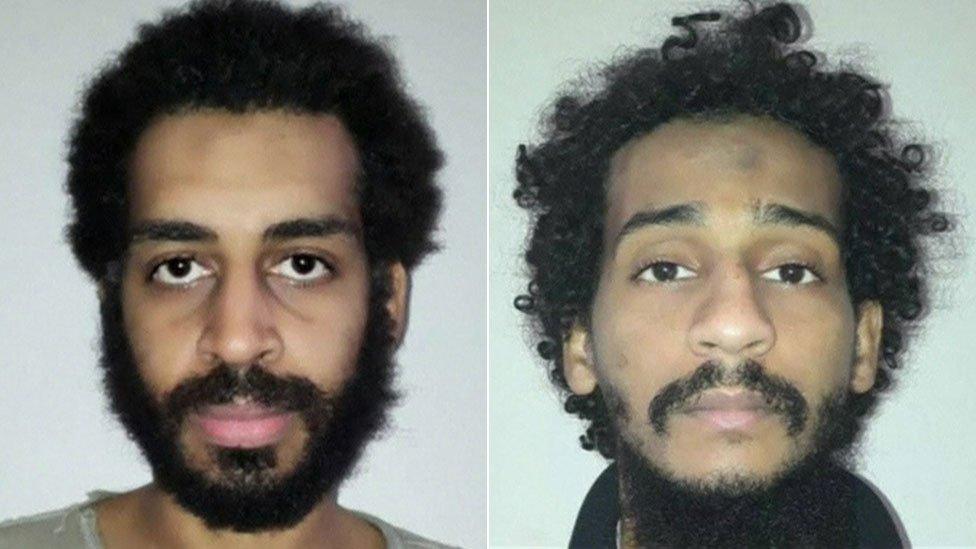
- Published23 September 2020

- Published11 August 2022
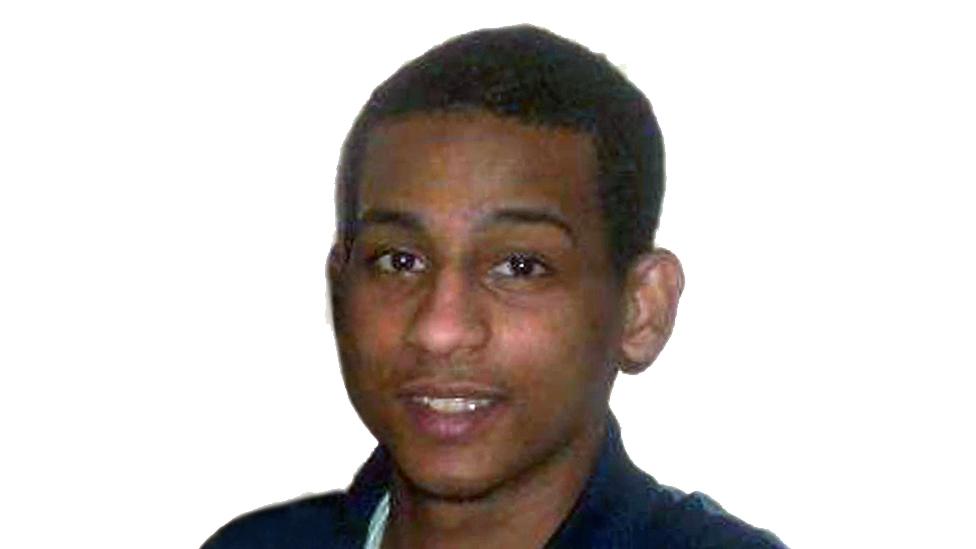
- Published23 September 2020
